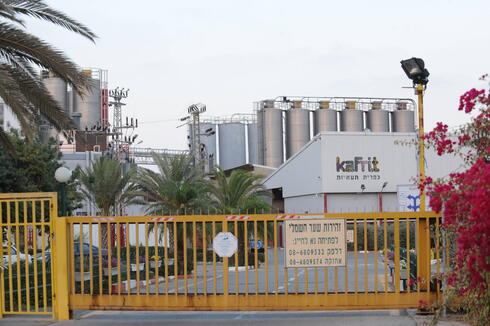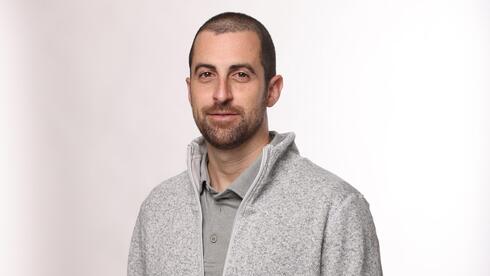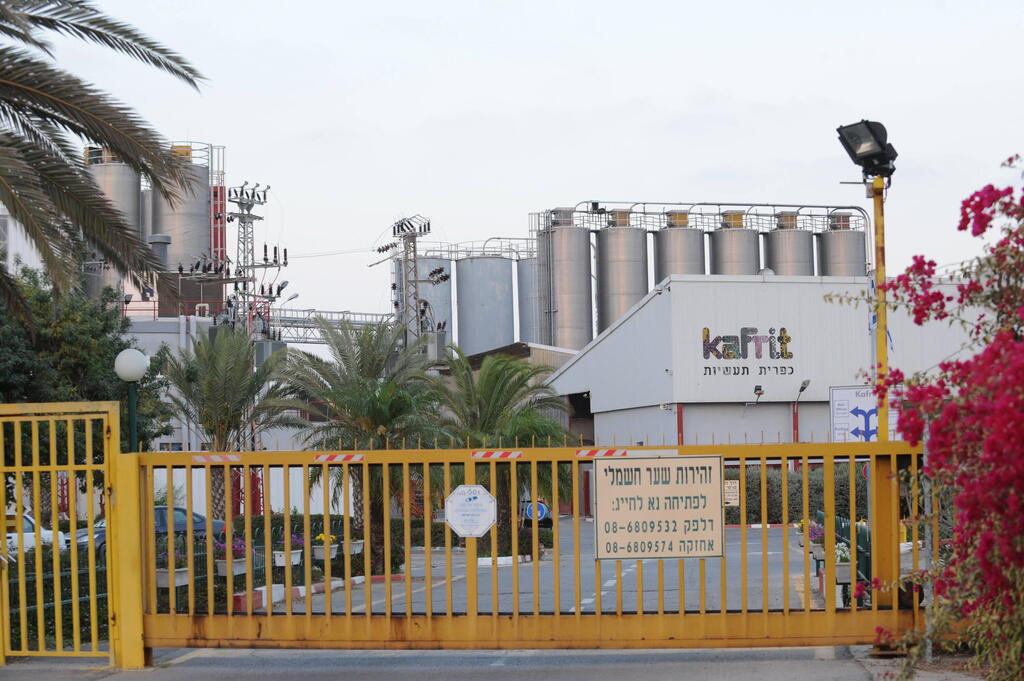
ISRAEL AT WAR
Kfar Aza plastics company hoping to return to activity after murder of three team members by Hamas
Israeli plastics manufacturer Kafrit Industries said that Director Aviv Kotz, VP of Business Development, Nadav Goldstein, as well as company employee Dorit Bar-Ilan, were murdered by Hamas. Many relatives of employees were also murdered in the Hamas attack on Israel, and some of them had family members who were kidnapped
The Kafrit Industries plastic manufacturing company located in Kibbutz Kfar Aza has reported that in the October 7th terrorist attacks on Israel, Director Aviv Kotz, VP of Business Development, Nadav Goldstein, as well as company employee Dorit Bar-Ilan, were murdered. Kafrit is a public company and the news was published in a report to the Tel Aviv Stock Exchange. Among the company's 30 employees are also family members of those killed and kidnapped.
Kafrit Industries is the largest commercial company located in Kfar Aza and is also the first public company to announce the names of victims as a result of the attack.
Kafrit, which is engaged in the development, production and marketing of concentrates and mixtures for the plastics industry, is traded on the Tel Aviv Stock Exchange at a value of approximately NIS 300 million. Kfar Aza members own 57.6% of the company's shares.
Kafrit's management and CEO Daniel Singer, who lives in Tel Aviv, did not know until the end of last week what the condition of the factory was and the extent of the damage.
On Friday, October 13th, following several requests from the representatives of Kafrit’s administration, the IDF informed them that they could visit the plant that covers 17 dunams in the center of the kibbutz and check the situation. A few hours after receiving the approval, a small team from the company arrived at the plant, prepared for the worst, but were surprised to see that it was not damaged by the Hamas terrorists storming the kibbutz. But the encouraging news, that the factory would be able to work again, was quickly mixed with sadness when it was learned that 3 of the 30 Kafrit workers who live in the kibbutz were murdered, and others are dealing with the horror of the kidnapping of their relatives taken to Gaza.
"Amidst the challenges, we want to reassure you that our factories outside Israel - in the Europe, North America and China, are operating without any disruptions," the company wrote. "While our KAFRIT IL factory in Kfar Aza has temporarily paused production, it remains unharmed and stands ready for a swift return to full operation once the situation stabilizes, and the necessary security clearances are in place. In the meantime, our other group plants are standing strong, providing unwavering support and doing everything possible to ensure seamless service to our customers.
"Kafrit Group remains a pillar of strength and resilience. Our history is a testament to our ability to overcome severe crises, and this current challenge will be no different. We firmly believe that, together, we will not only endure but thrive, continuing to lead in the industry, striving for a brighter and better future."
Kfar Aza was founded in 1951 along the armistice lines after the War of Independence. Kafrit Industries was established in 1993 and owns five subsidiaries that operate abroad, but the group's production and management are located in Kfar Aza. The company went public in the year of its establishment and alongside the kibbutz as the controlling owner, the Phoenix Insurance Company owns 13.3% of its shares and the Yelin Lapidot Investment House holds 5.3%.
"The factory is standing, and in fact was not damaged at all," CEO Singer told Calcalist. “The real problem is not related to the property, but to the safety of the workers, who live and work there. The state should provide personal security to workers and residents. Their security is the state's responsibility, because if they don't feel safe, they won't come to work," he said.
Singer mentioned that the companies Strauss and Osem- which also have factories in the area - are finding it difficult to return to regular work. He stated that he would not object to employees who hold a license to carry a weapon bringing their gun to work for protection, but clarified that "the solution must come from above."
As of the end of 2022, Kafrit employed 120 workers, and the company's management focused last week on treating those who were directly or indirectly affected by the events in the south. "We are talking with them and trying to respond to the needs that arise. We have employees who were murdered, and employees whose family members were murdered or kidnapped, and those who still do not know for sure what happened to their loved ones. All our managers went and tried to meet with as many employees as possible. The funerals have only just begun, and many of them go from house to house to console the mourners."
Singer also explained that beyond taking care of the employees, "the second task is to meet the requests of the customers. We are working to get them the stock we have in the factory, and beyond that we are trying to find other factories that can produce some of our products. We are used to this, because we carried out this procedure in previous rounds of the fighting in Gaza."
Kafrit has expanded outside of Israel in recent years through a strategy of mergers and acquisitions. Two of its six subsidiaries - which are engaged in the marketing of the products in the world - operate in Germany, and the others in the United States, Canada, China and Sweden.
To the question of whether the disaster that befell Kfar Aza makes the management think about changing the location of the factory, Singer answered: "There are no thoughts of moving the factory. Nor is there any reason for it. The whole country is suffering these days from the war. Kfar Aza is the home of Kafrit. We will find a way to give security to the workers, and the strong community of Kfar Aza will also help us to return to normal."
Until October 7th, about 750 residents lived in Kibbutz Kfar Aza. The rural settlement, whose population has been among the main victims of the killing spree carried out by Hamas, lost 52 of its members.
First published: 10:57, 17.10.23














